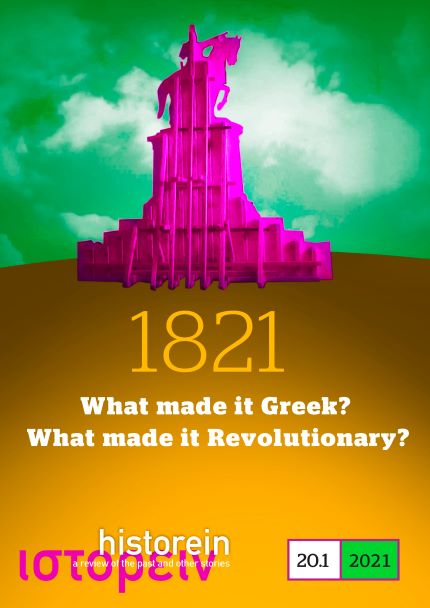From Warriors to Soldiers: Regularising Military Logistics and the Emergence of Military Medicine. The Case of the Armatoles (c. 1800–1831)

Abstract
The article explores the coincidence of military and medical reforms in the Ottoman Empire, which occurred around the turn of the nineteenth century, by connecting both developments to the question of the steady flow of supplies to military camps. The intention to organise a standing army to replace the military force of local warriors, like the armatoles in Rumelia, presupposed the monopolisation of sources of power and the regularisation of logistics. As a result, free warriors became obedient soldiers as they were progressively alienated from the means of warfare. Physicians and surgeons were integrated at one point into the armies of the empire in order to successfully organise their logistics and to expand the definition of the means of warfare to include the soldier’s body – intensifying thus the forces of military discipline. Military medicine was the byproduct of a transformation process that the armatoles were already undergoing before the 1821 Greek Revolution and that Governor Ioannis Kapodistrias (1828–1831) concluded. Ultimately, the article opens up the discussion about the political, medical, cultural and military implications of the transition from the empire to the state and of the emergence in this context of military medicine.
Article Details
- How to Cite
-
Barlagiannis, A. (2022). From Warriors to Soldiers: Regularising Military Logistics and the Emergence of Military Medicine. The Case of the Armatoles (c. 1800–1831). Historein, 20(1). https://doi.org/10.12681/historein.25351
- Section
- I. THE CONSOLIDATION OF REVOLUTIONARY GREECE

This work is licensed under a Creative Commons Attribution-NonCommercial-ShareAlike 4.0 International License.
The copyright for articles in this journal is retained by the author(s), with first publication rights granted to the journal. By virtue of their appearance in this open access journal, articles are free to use (with the exception of the non-granted right to make derivative works) with proper attribution for non-commercial uses (licence Creative Commons 4.0). EKT/NHRF retains the worldwide right to reproduce, display, distribute, and use articles published in Historein in all formats and media, either separately or as part of collective works for the full term of copyright. This includes but is not limited to the right to publish articles in an issue of the Journal, copy and distribute individual reprints of the articles, authorize reproduction of articles in their entirety in another EKT/NHRF publication, and authorize reproduction and distribution of articles or abstracts thereof by means of computerized retrieval systems.

